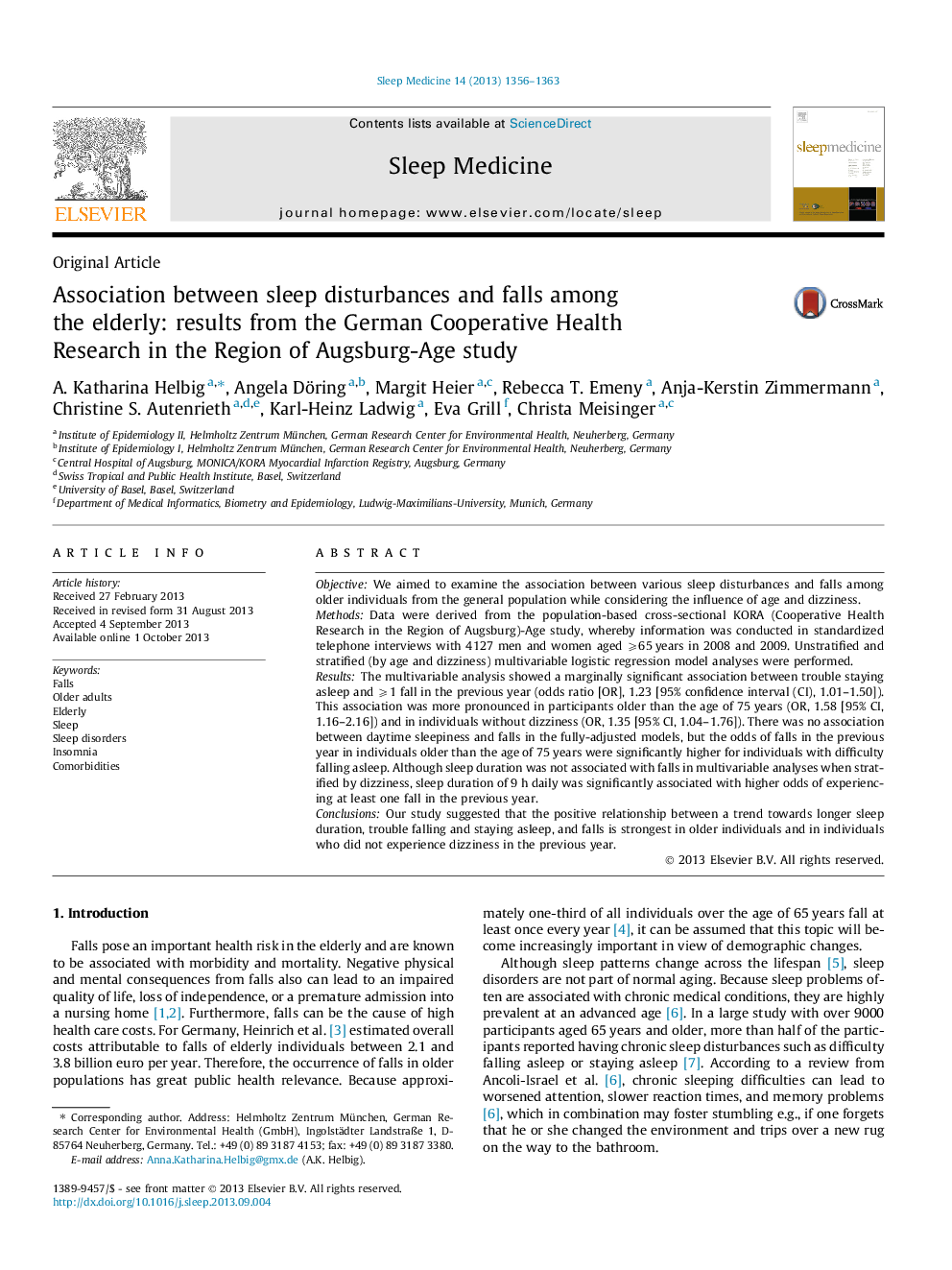| کد مقاله | کد نشریه | سال انتشار | مقاله انگلیسی | نسخه تمام متن |
|---|---|---|---|---|
| 6061040 | 1200253 | 2013 | 8 صفحه PDF | دانلود رایگان |
- An association between trouble staying asleep and history of falls was observed in individuals older than the age of 75Â years.
- A relationship emerged between difficulties falling asleep and falls in participants older than the age of 75Â years.
- Regardless of age no independent association between daytime sleepiness and history of falls was observed.
- In individuals with dizziness, all sleep disturbances were not significantly associated with falls.
- In individuals without dizziness, trouble staying asleep and sleeping 9Â h significantly increased the odds of a fall.
ObjectiveWe aimed to examine the association between various sleep disturbances and falls among older individuals from the general population while considering the influence of age and dizziness.MethodsData were derived from the population-based cross-sectional KORA (Cooperative Health Research in the Region of Augsburg)-Age study, whereby information was conducted in standardized telephone interviews with 4127 men and women aged ⩾65 years in 2008 and 2009. Unstratified and stratified (by age and dizziness) multivariable logistic regression model analyses were performed.ResultsThe multivariable analysis showed a marginally significant association between trouble staying asleep and ⩾1 fall in the previous year (odds ratio [OR], 1.23 [95% confidence interval (CI), 1.01-1.50]). This association was more pronounced in participants older than the age of 75 years (OR, 1.58 [95% CI, 1.16-2.16]) and in individuals without dizziness (OR, 1.35 [95% CI, 1.04-1.76]). There was no association between daytime sleepiness and falls in the fully-adjusted models, but the odds of falls in the previous year in individuals older than the age of 75 years were significantly higher for individuals with difficulty falling asleep. Although sleep duration was not associated with falls in multivariable analyses when stratified by dizziness, sleep duration of 9 h daily was significantly associated with higher odds of experiencing at least one fall in the previous year.ConclusionsOur study suggested that the positive relationship between a trend towards longer sleep duration, trouble falling and staying asleep, and falls is strongest in older individuals and in individuals who did not experience dizziness in the previous year.
Journal: Sleep Medicine - Volume 14, Issue 12, December 2013, Pages 1356-1363
